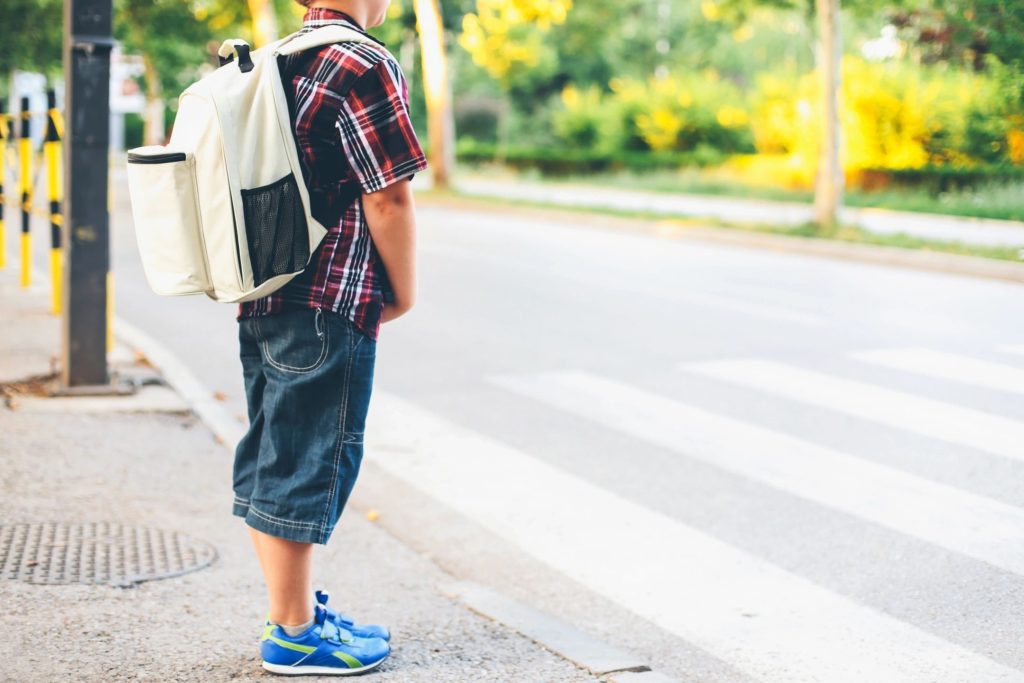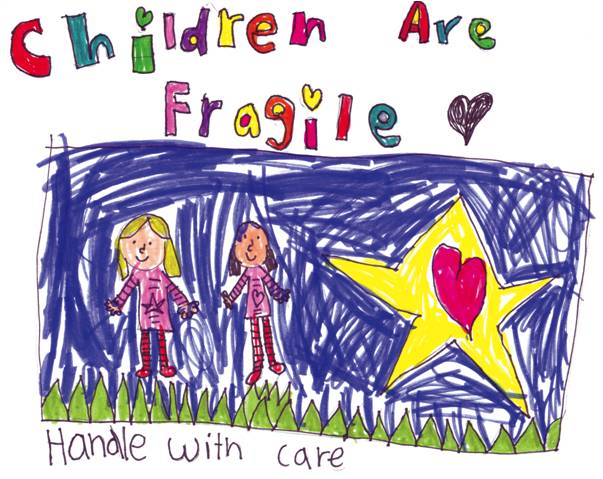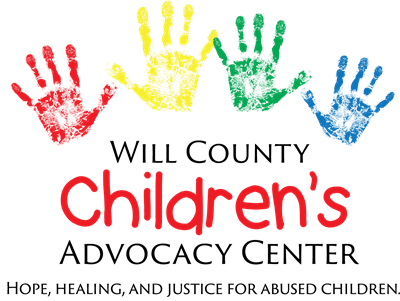If you suspect a child has been harmed or is at risk of being harmed by abuse or neglect, call 911 or the 24-hour Child Abuse Hotline at 1-800-25-ABUSE (1-800-252-287) or TTY 1-800-358-5117.
If you believe a child is in immediate danger that could result in death or serious harm, call 911 first. Your confidential call will not only make sure the child is safe, but also help provide the child’s family the services they need to provide a safe, loving and nurturing home. In non-emergency situations, anyone may may report suspected child abuse or neglect using the Online Reporting System.
What if I’m not absolutely sure abuse is occurring?
Unfortunately, as much as 70% of child abuse goes unreported, and a child tells an average of 7 adults that they are being abused or neglected before a report is made. Every delay in reporting suspected abuse or neglect increases the likelihood that abuse will become more serious, or even deadly, and that the perpetrator will abuse additional children. By trusting your own senses, common sense and instincts, and making a report whenever you suspect a child has been harmed or is at risk of harm, you can ensure a child is safe and that her family is getting the help they need.
For more information about reporting child abuse or neglect, read the Care Enough to Call brochure in English, español or Chinese (中国).

Community Education (Available in Spanish)
Our commitment to the safety of children extends beyond those served at the Will County CAC. We will provide a Recognizing and Reporting Child Abuse presentation, highlighting the the signs and symptoms of child abuse to any school, daycare, after-school program, church, or child-serving organization. Let us help you train your staff on how to recognize and report child abuse! Email us at cac@willcountyillinois.com with your request.
- WHAT TO EXPECT: A Guide for Parents [English] [Spanish]
- COPING WITH TRAUMA in Your Family [English] [Spanish]
- HELPING YOUR CHILD HEAL From Abuse [English] [Spanish]
- MENTAL HEALTH SERVICES [English & Spanish]
- MEDICAL EXAM Q&A at Edward Hospital Care Center [English] [Spanish]
- SAFETY TIPS FOR SAFE KIDS [English]

How To Protect Your Child
Take the time to talk to your child.
- Be calm and confident before discussing this topic with your child.
- Do not scare your child; your tone should be neutral, educational and empowering.
- Let your child know that you are always there for him/her and always want to protect him/her.
- Teach your child that the parts of their body that a bathing suit covers are private parts and that no one is allowed to see or touch them there.
- Allow time for your child to process and to ask you questions.
- Have your child identify 5 safe people they can talk to if someone ever makes them uncomfortable.
- Make talking to your child about personal safety an ongoing dialogue rather than a single conversation.
- It’s important not to interrogate children. Ask simple, open-ended questions in a calm manner: "Has anyone ever made you feel uncomfortable or scared? Has anyone ever asked you to keep a secret?"
Familiarize yourself with the policies and practices of organizations where your children spend time.
- Confirm background checks are conducted on all employees and volunteers.
- Ensure policies are in place that prohibit situations where an adult can be alone with your child in one room when no one else is around.
- Talk to your child to find out if the policies are being followed when you are not there.
- Require all staff and volunteers to be trained annually on child safety and on how to make a report.
Be vigilant and ASK questions!
- Watch for changes in your child’s behavior. If your child is reluctant to go certain places or to be with certain people, ask questions.
- Notice their behavior before and after spending time alone with an adult.
If a child does reveal something concerning, believe the child. Reassure him/her that he/she has done the right thing in telling you and that what happened is absolutely not their fault. Call the DCFS Child Abuse Hotline immediately: 1-800-25-ABUSE (1-800-252-2873), or dial 911.
DO NOT interview the child or contact the alleged offender — report your suspicions and let the appropriate authorities investigate.

Types & Signs of Abuse
The following are signs commonly associated with abuse, but they are not absolutes. This list is not a checklist but a guide to help identify abuse when it is present.
Physical Abuse can be any act of violence (accidental or intentional) that results in an injury to a child. This may include punching, kicking, shaking, stabbing, throwing, biting, choking, burning or hitting (with an hand or an object, like a belt or switch).
- Frequent injuries that are unexplained and/or when the child or parent cannot adequately explain injury causes such as: bruises, cuts, black eyes, fractures, burns
- Burns or bruises in an unusual pattern that may indicate the use of an instrument
- Lack of reaction to pain
- Injuries that appear after the child has not been seen for several days
- Evidence of delayed or inappropriate treatment for injuries
- Injuries involving the face, backs of hands, buttocks, genital area, abdomen, back, or sides of the body
- Frequent complaints of pain without obvious injury
- Complaints of soreness or discomfort when moving
- Aggressive, disruptive, and destructive or self-destructive behavior
- Passive, withdrawn, emotionless behavior
- Fear of going home or seeing parents
Sexual Abuse may involve inappropriate touching, being forced to have sex or engage in sexual acts, being forced to watch pornography, being prostituted, or having someone expose themselves to a child.
- Torn, stained, or bloody underclothing
- Pain, swelling, or itching in genital area
- Difficulty walking or sitting
- Excessive seductiveness, inappropriate sex play, or premature understanding of sex
- Role reversal, overly concerned for siblings
- Significant weight change
- Suicide attempts (especially adolescents)
- Threatened by physical contact or closeness
- Extreme fear of being alone with adults, especially if of a particular gender
- Sudden refusal to change for gym or to participate in physical activities
- Sexual victimization of other children
- Major change in normal mood or behavior
Neglect is a failure to provide certain basic necessities of life, including food/water, adequate shelter, or appropriate supervision. Not getting medical care or not being taken to school may also classify as neglect.
- Obvious malnourishment or inadequate nutrition
- Lack of personal cleanliness
- Torn and/or dirty clothes
- Need for glasses, dental care, or other unattended medical attention
- Consistent hunger, stealing or begging for food
- Distended stomach, emaciated
- Lack of supervision for long periods of time
- Frequent absence or tardiness from school
- Regularly displays fatigue or listlessness or falls asleep in class
- Reports that no caretaker is at home
- Self-destructive behavior
- Extreme loneliness and need for affection
Emotional Abuse is the most difficult category to define, and unfortunately, the most difficult type of abuse to investigate. Examples include harsh criticism, name-calling or derogatory comments, shaming, threatening, withholding love and affection, and possibly exposing children to domestic violence.
- Speech disorders
- Delayed physical development
- Substance abuse
- Ulcers, asthma, severe allergies
- Habit disorders (sucking, rocking, biting)
- Antisocial or destructive behaviors
- Delinquent behaviors (especially adolescents)
- Developmentally delayed

Online Resources
- Guidelines for reporting child abuse or neglect in Illinois: ENGLISH • ESPAÑOL • CHINESE (中国)
- Signs & Symptoms of Child Abuse and Neglect
- Talking to a Child Who Has Been Abused
- What is Sextortion? [FBI Video] - a criminal act that occurs when someone demands something of value - typically images of a sexual nature, sexual favors, or money - from a person.
- Sextortion of Children in the U.S. [FBI Brochure]
- Bullying
- Child Abuse: The Hidden Bruises
- Child Sexual Abuse
- Children Who Can't Pay Attention/Attention-Deficit/Hyperactivity Disorder
- Foster Care
- Helping Children Exposed to Domestic Violence
- Post Traumatic Stress Disorder (PTSD)
- Responding to Child Sexual Abuse
- The Anxious Child
- The Depressed Child
- When To Seek Help for Your Child
- Where to Find Help for Your Child
- How to Stop Bullying in Schools
- When It’s Time to Go
- Domestic violence against men: Know the signs
- Staying safe before and after leaving abuse
- 12 Steps to Protect Your Finances When Leaving an Abusive Relationship
Help us continue to provide hope, healing & justice for abused children.
Last year, the Will County Children's Advocacy Center served more than 700 Will County children (and their non-offending family members) who were sexually abused, severely physically abused, or who had witnessed a violent crime.
Children who have been victimized and receive program services at the Will County CAC, are less likely to: abuse drugs or alcohol, grow up to become victims of domestic violence, become involved in some sort of criminal activity, suffer from depression, anxiety disorders, or post-traumatic stress disorder, and/or develop suicidal ideation and self-harm.
Your financial gift can make a profound difference in changing a child’s life.
